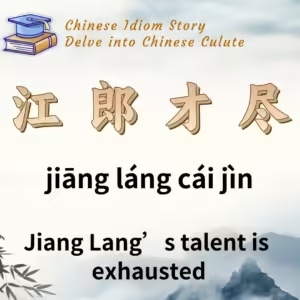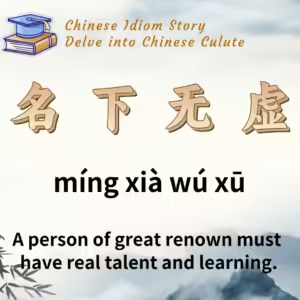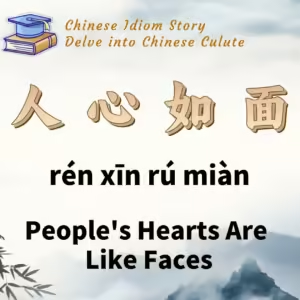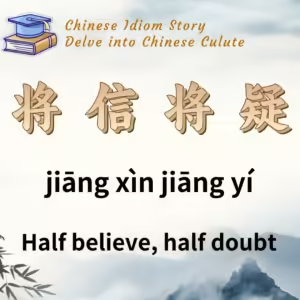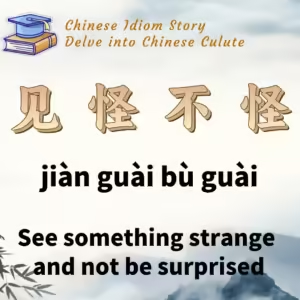
Chinese Idiom: 馋涎欲滴 (Chan Xian Yu Di)
English Translation: Drooling with desire
pīn yīn: chán xián yù dī
Idiom Meaning: This idiom describes an intense craving for food or strong desire for something.
Historical Source: The idiom originates from a poem by Su Shi (苏轼) titled Jiang Zhi Huzhou Xi Zeng Xin Lao (《将之湖州戏赠莘老》) during the Northern Song Dynasty.
Idiom Story:
The poem was composed in the winter of the fifth year of the Xining era (1072 AD). “Xin Lao,” refers to Sun Jue, a native of Gaoyou, who was serving as the prefect of Wuxing (present-day Huzhou, Zhejiang Province) at that time. Su Shi had a deep friendship with him. The poem consists of twelve lines, with the first eight describing the seasonal features of Huzhou and the last four concluding with playful remarks.
The relevant lines of the poem read:
“The tea buds from Gu Zhu are whiter than teeth,
The wood melon from Mei Xi is redder than cheeks.
The Wu people expertly prepare their dishes so thin,
Even before arriving, I find my mouth watering.”
In the first two lines, the poet praises the purple bamboo shoots tea from Gu Zhu Mountain and the wood melon from Mei Xi Mountain. In the last two lines, he observes that the people of Wu (Huzhou residents) are skilled in preparing delicate dishes. The meat is cut into fine shreds, and even before he arrives, the thought of it makes his mouth water.
This vivid imagery of delicious food and the resulting drooling craving gave rise to the idiom “馋涎欲滴,” encapsulating the essence of intense culinary desire and greed.

